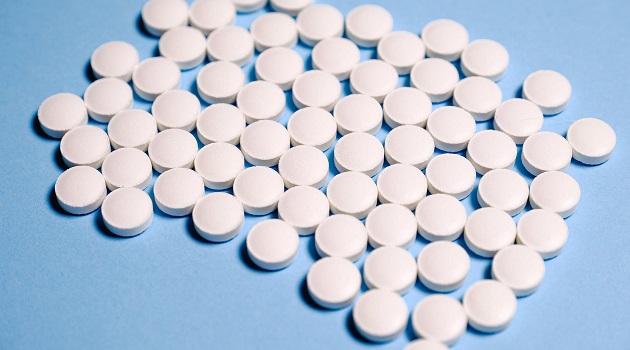By Mike DuBose with Surb Guram, MD
Surprisingly, aspirin has been consumed by humans for thousands of years. Ancient Egyptians used willow bark that contained salicin (a primary ingredient in aspirin) as an anti-inflammatory and pain reliever. The Greek physician Hippocrates prescribed willow leaf tea to help women with the pain of childbirth in 400 BC. In 1897, Bayer created a patented aspirin formula with fewer side effects.
In a 2016 Harvard University Medical School’s report, scientists debated the question: “Is Aspirin a Wonder Drug?” When taken during a heart attack, aspirin may save one’s life, helping dissolve the blood clots causing the cardiac event. In addition, several studies over the past three decades have linked daily aspirin use to reduced risk of strokes and heart attacks in patients with heart disease and AFIB (irregular heartbeat). In 2016, the U.S. Preventive Services Task Force released guidelines recommending daily low-dose aspirin (81 MG) use to prevent colorectal cancer in some adults aged 50+.
With all of this positive press, it’s easy to understand how the public might perceive aspirin as miracle medicine for preventing and treating serious illnesses. Harvard University Medical School reported in July 2021 that one-half of all Americans aged 45 and older take low-dose aspirin (81 MG), many without their doctor’s recommendation.
“Taking aspirin in this manner— with the goal of avoiding the first occurrence of a heart attack and stroke — is called primary prevention. Taking daily aspirin to prevent another cardiac event or stroke from happening when you have already had one is called secondary prevention.”
How does aspirin work? When a part of the body is injured, damaged tissues release hormone-like chemicals called prostaglandins, which cause the tissue to swell. They also intensify the electrical signals traveling from the nerves to the brain that cause pain, which is essentially a sign from the body that something is wrong. Aspirin blocks certain enzymes that create prostaglandins, reducing pain and swelling. When taken to address fever, aspirin impacts the hypothalamus, a region of the brain that plays a crucial function, such as releasing hormones and regulating body temperature.
From a cardiovascular perspective, aspirin may help prevent heart attacks and strokes by reducing the accumulation of platelets with certain patients. These tiny cells travel in the bloodstream, and when a person receives a wound, the platelets come together to form a clot. Although they’re useful to halt bleeding in this manner, platelets can also form harmful clots that block arteries, leading to strokes and heart attacks.
The Bottom Line: Over the last three decades, there has been considerable research to assess the benefits and risks of taking aspirin. For some individuals with an existing medical condition, it may help improve your wellbeing, prevent a disability, or save your life. And, on the other hand, according to Mayo Clinic, “Daily aspirin can have serious side effects and is not for everyone.” According to Harvard Health, “For the time being, the science remains uncertain and experts don’t agree on who should take aspirin to prevent a first heart attack or stroke.” Be sure to consult with your doctor before taking or continuing that innocent, tiny baby aspirin. Our next article will focus more on the dangers of aspirin.
Mike DuBose has been an instructor for USC’s graduate school since 1985, when he began his family of companies, and is the author of The Art of Building a Great Business. Visit his nonprofit website www.mikedubose.com for a free copy of his book and additional published business, travel, and personal articles, as well as health articles written with Surb Guram, MD.
Surb Guram, MD is a board-certified internist, a partner with the SC Internal Medicine Associates in Irmo, SC, and has practiced internal medicine in the Midlands for the past 30 years.


